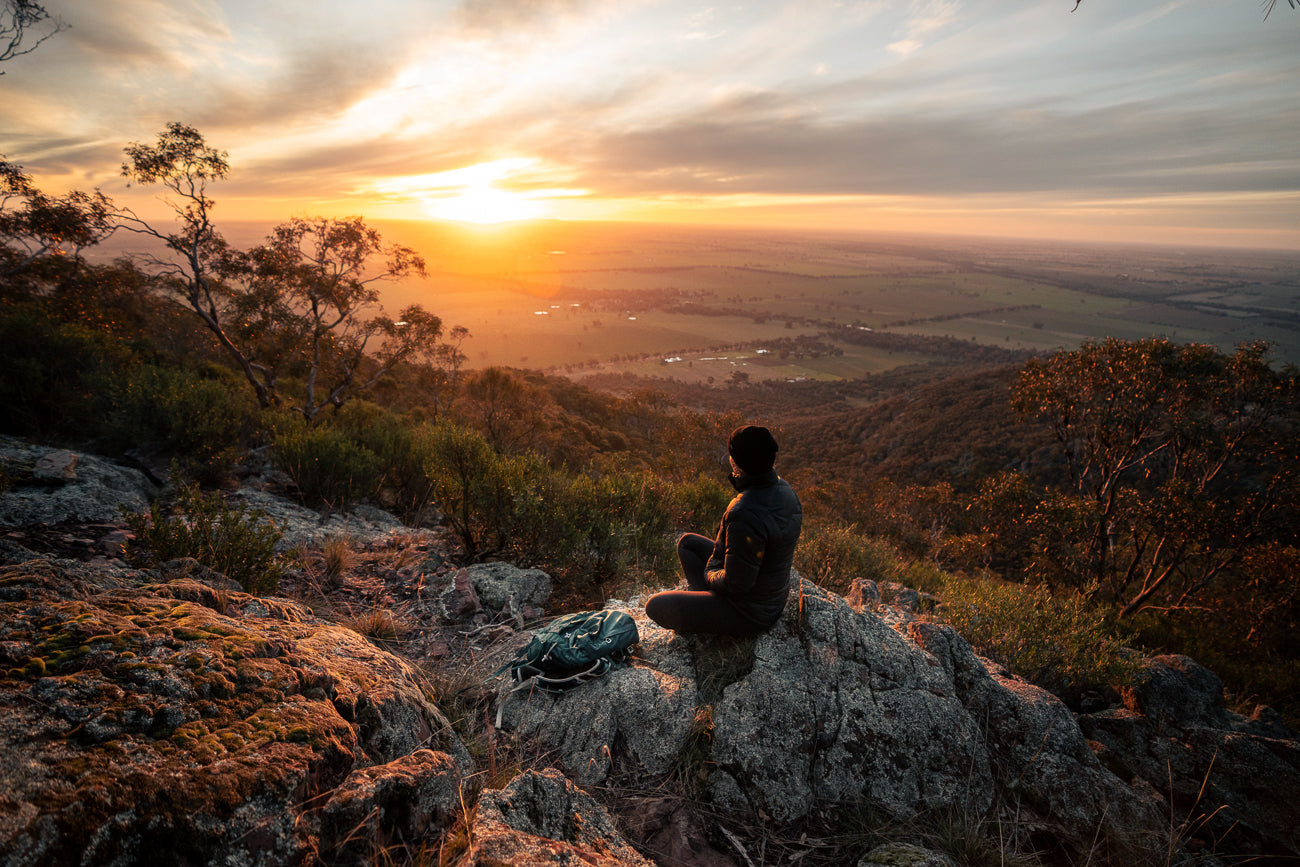
The Rock Nature Reserve - Kengal Aboriginal Place | Day Hike Near Wagga Wagga
We were a bit stuck on a filming idea this week with the weather in the Northern End of Kosciuszko a bit meh and the recent close of the trout season leaving our lines dry. We tossed a few ideas back and forth, perhaps a section of the Hume and Hovell? Then the obvious hit us, The Rock! Its unassuming location, surrounded by farmland and the lack of a river to fish or snow to play with left it at the bottom of our filming list, which really isn't fair to its offering of impressive vistas and dramatic rocky outcrops. So we headed out of Tumut, off the Snowy Mountains Highway and onto the Hume, with our fingers crossed for the fog to lift and a prayer to the sun gods for a magical golden hour.
Filmed and edited by Pat Ryan. Featuring Chloe Symons.
Rising 364 metres above the plains to the south-west of Wagga Wagga, lies The Rock Nature Reserve - Kengal Aboriginal Place. This iconic rock formation is millions of years old and traditionally known as Kengal, meaning sloping hill. Kengal is a Dreaming place, lookout and ceremonial site for the Wiradjuri people. The Rock stands proud, dominating the surrounding plains, overlooking the small village of the same name with Wagga Wagga (so good they named it twice) lying 25km away in the distance.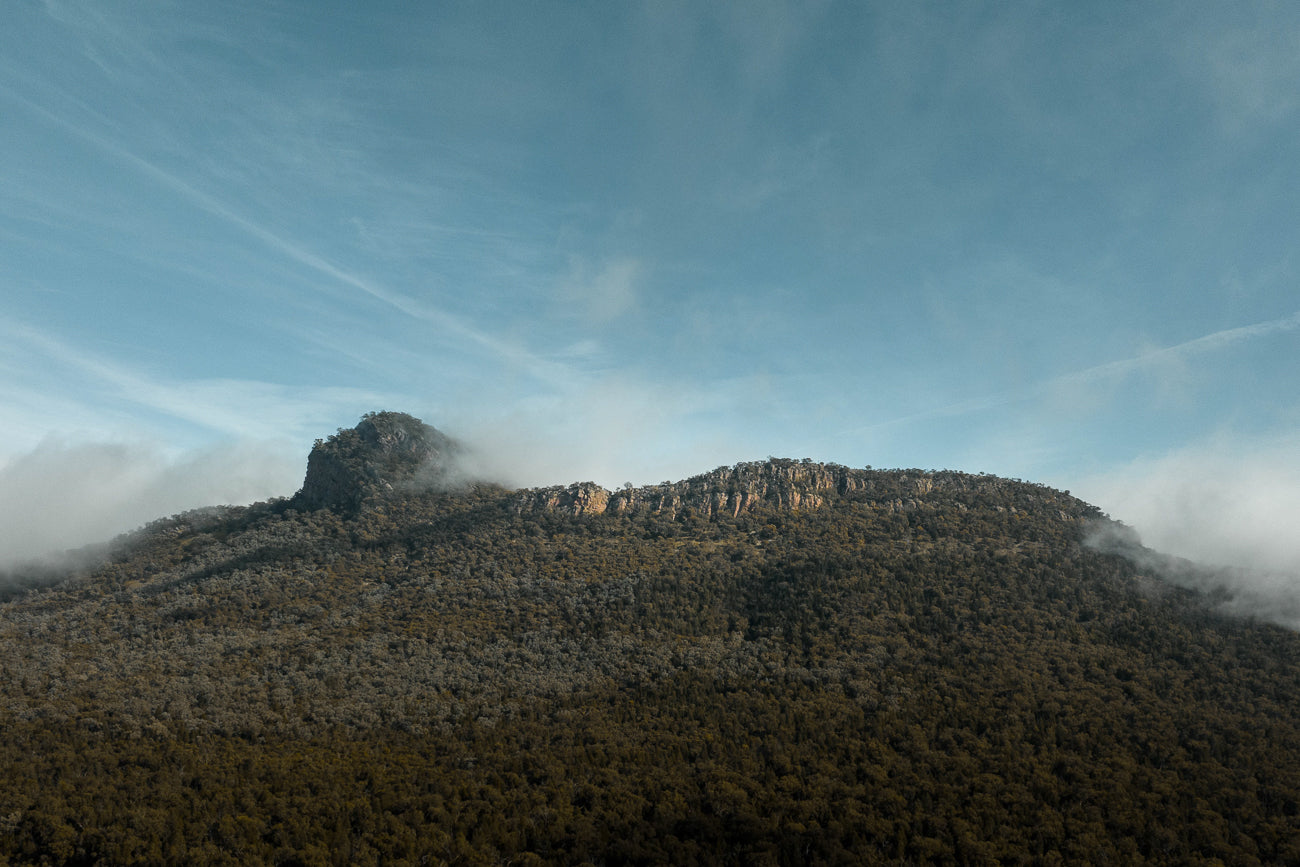 There is something very satisfying about climbing to the top of something. Especially when it’s the highest and only peak surrounded by the never-ending rolling plains of western NSW. There is something equally as satisfying about climbing to the top of something and sitting back with a cuppa to watch the sunset, then clambering back down in a race against the stars as they begin to fill the sky.
There is something very satisfying about climbing to the top of something. Especially when it’s the highest and only peak surrounded by the never-ending rolling plains of western NSW. There is something equally as satisfying about climbing to the top of something and sitting back with a cuppa to watch the sunset, then clambering back down in a race against the stars as they begin to fill the sky.
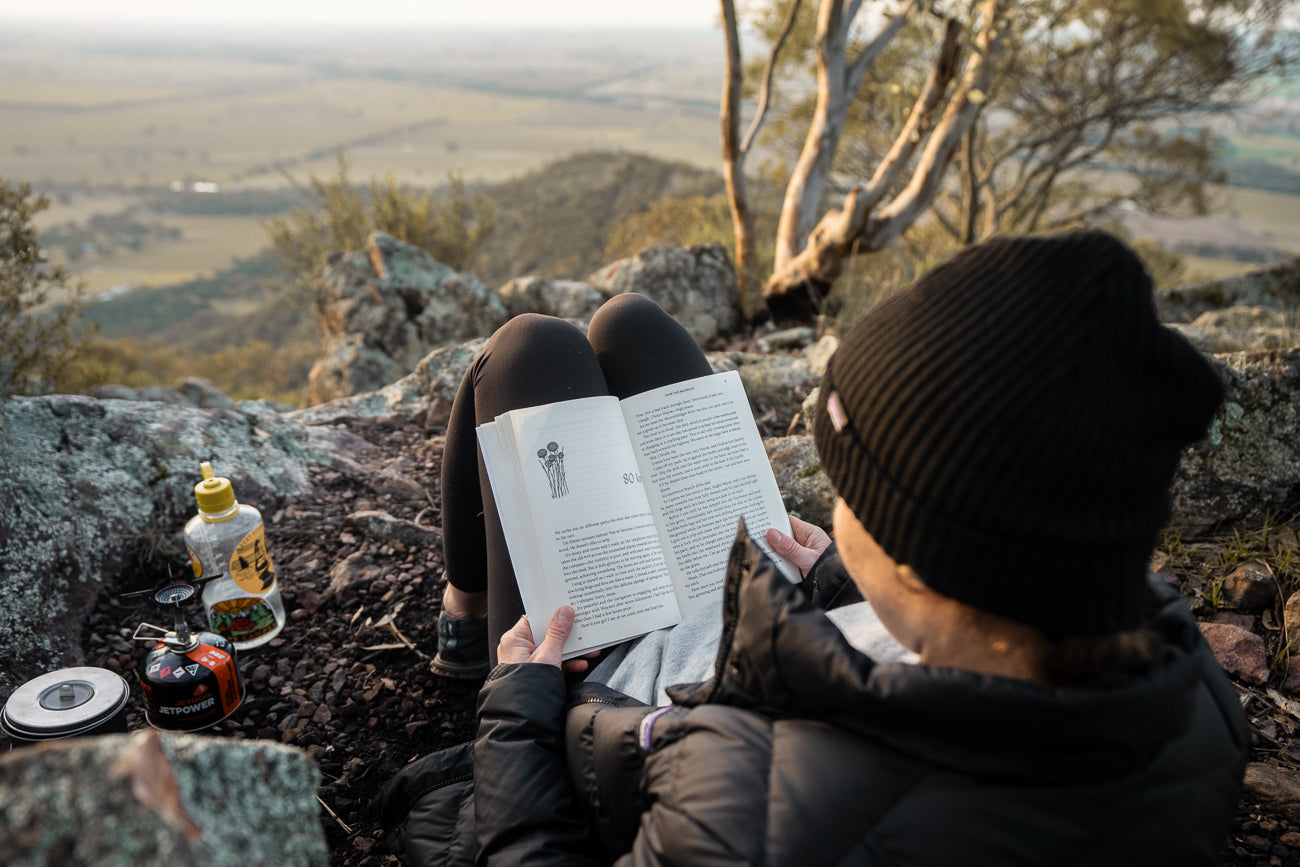
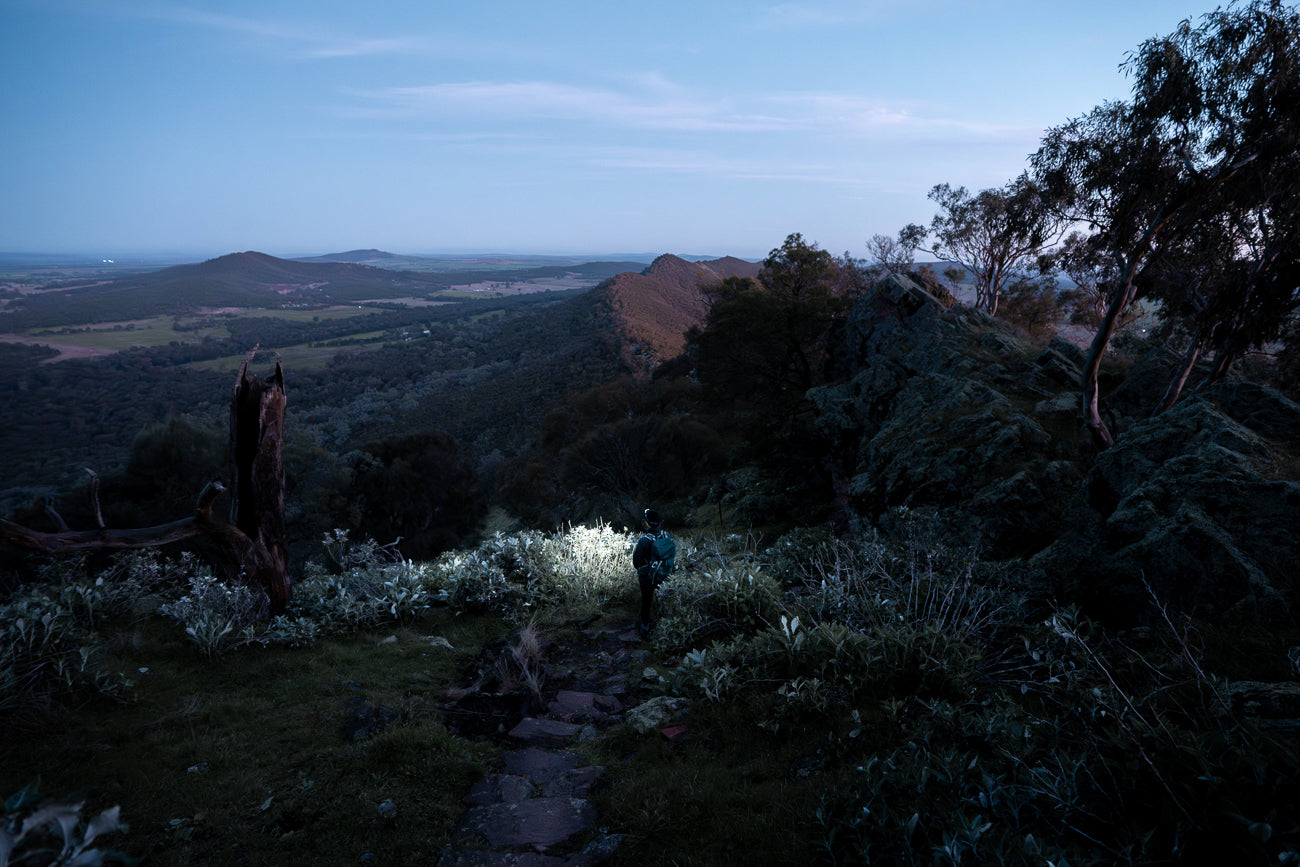 Wiradjuri History
Wiradjuri History
The Rock, initially known as Kengal, was brought into existence by Biyaami, the all-powerful creator spirit who bestowed upon the Wiradjuri People their laws for living, songs, lore and culture. There are two related stories for the creation of Kengal. One tells of a time when two Wiradjuri warrior brothers of the Yugay (dingo) mob were fighting over a woman of the same mob. The brothers and the woman broke the traditional laws of kinship where members of the same kin cannot marry and no one can possess something, as everything is a gift from Biyaami. As a consequence and example to others, all three were locked in stone for eternity and Kengal was formed. The other story suggests that as European settlers arrived in the region, Biyaami departed, leaving behind his companions, a male and female dingo known as Mirrigan, who are transformed into Kengal as they patiently await Biyaami's return. You can learn more about Indigenous culture and Wiradjuri people by booking a Bundyi Cultural Tour.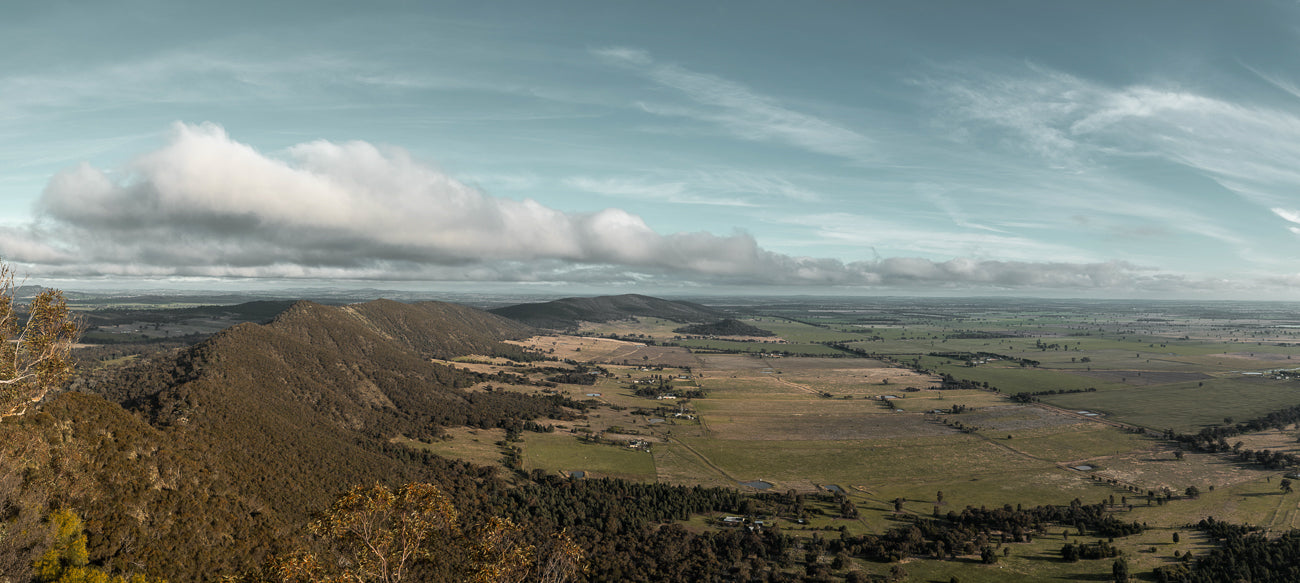
The Rock Nature Reserve - Kengal Aboriginal Place
The Rock stands proudly from a surrounding Nature Reserve and picnic area, home to some of Australia's finest flora and fauna, including red gums, yellow wattle, glossy black cockatoos, turquoise parrots and our beloved wallaby. Peregrine Falcons nest amongst the set of rocky cliffs known as The Towers. This area is popular amongst local climbers, however, is closed for the majority of the year to allow these majestic birds to breed. The nature reserve has a well-equipped picnic area with toilets and BBQs and plenty of signage directing you to walking tracks or informing on the history of the area.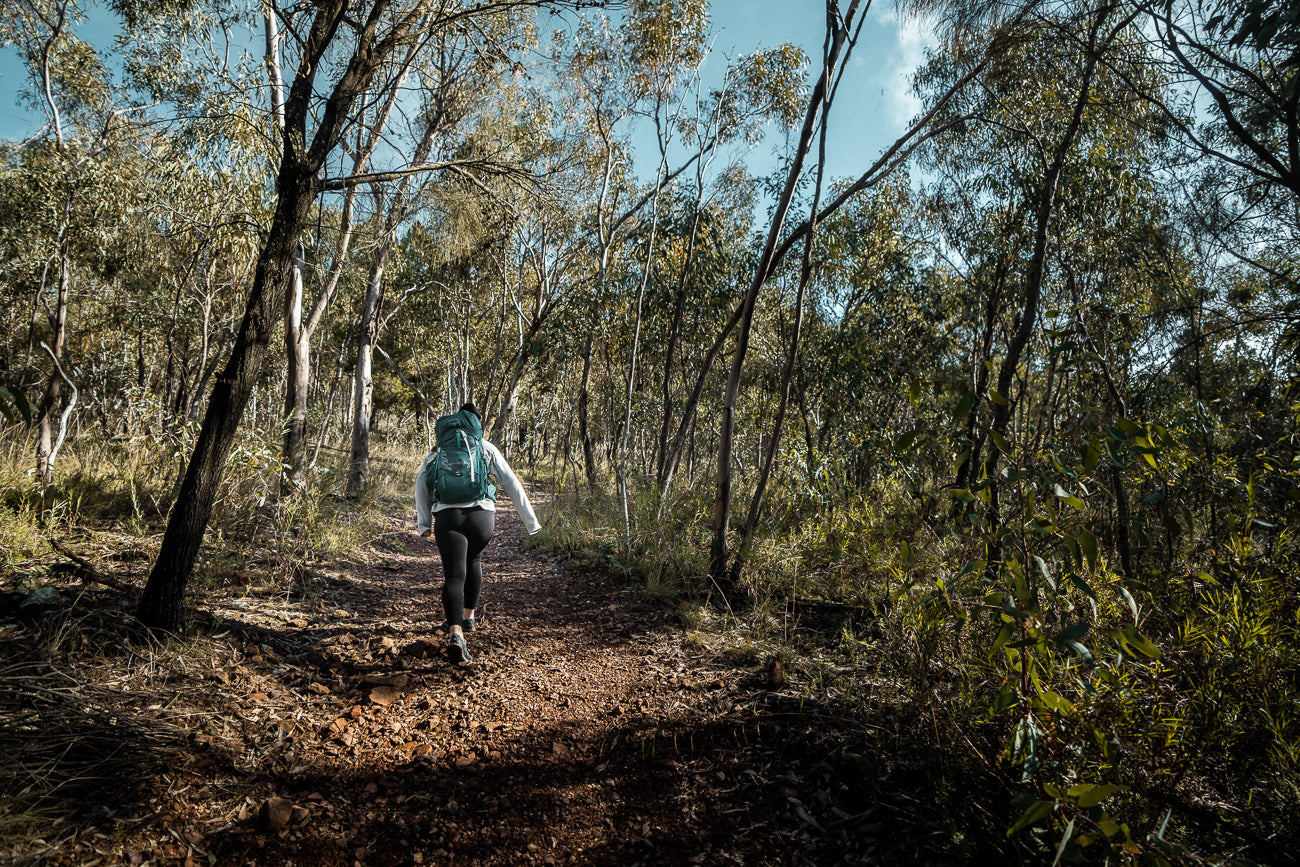 There are two ways to tackle this geological giant; the Yerong Nature Trail and the slightly more difficult Yugay Track. Both tracks are well signposted with directional and informational signs so you can learn about the Wirdajuri significance and the area's biodiversity as you ascend. We took the Yugay Track up and descended via the Yerong Nature Trail. Both tracks reveal panoramic vistas of the surrounding landscape, becoming increasingly spectacular as you reach the top. Legend has it that on a clear day, you can see as far as the snow-capped mountains of Kosciuszko!
There are two ways to tackle this geological giant; the Yerong Nature Trail and the slightly more difficult Yugay Track. Both tracks are well signposted with directional and informational signs so you can learn about the Wirdajuri significance and the area's biodiversity as you ascend. We took the Yugay Track up and descended via the Yerong Nature Trail. Both tracks reveal panoramic vistas of the surrounding landscape, becoming increasingly spectacular as you reach the top. Legend has it that on a clear day, you can see as far as the snow-capped mountains of Kosciuszko!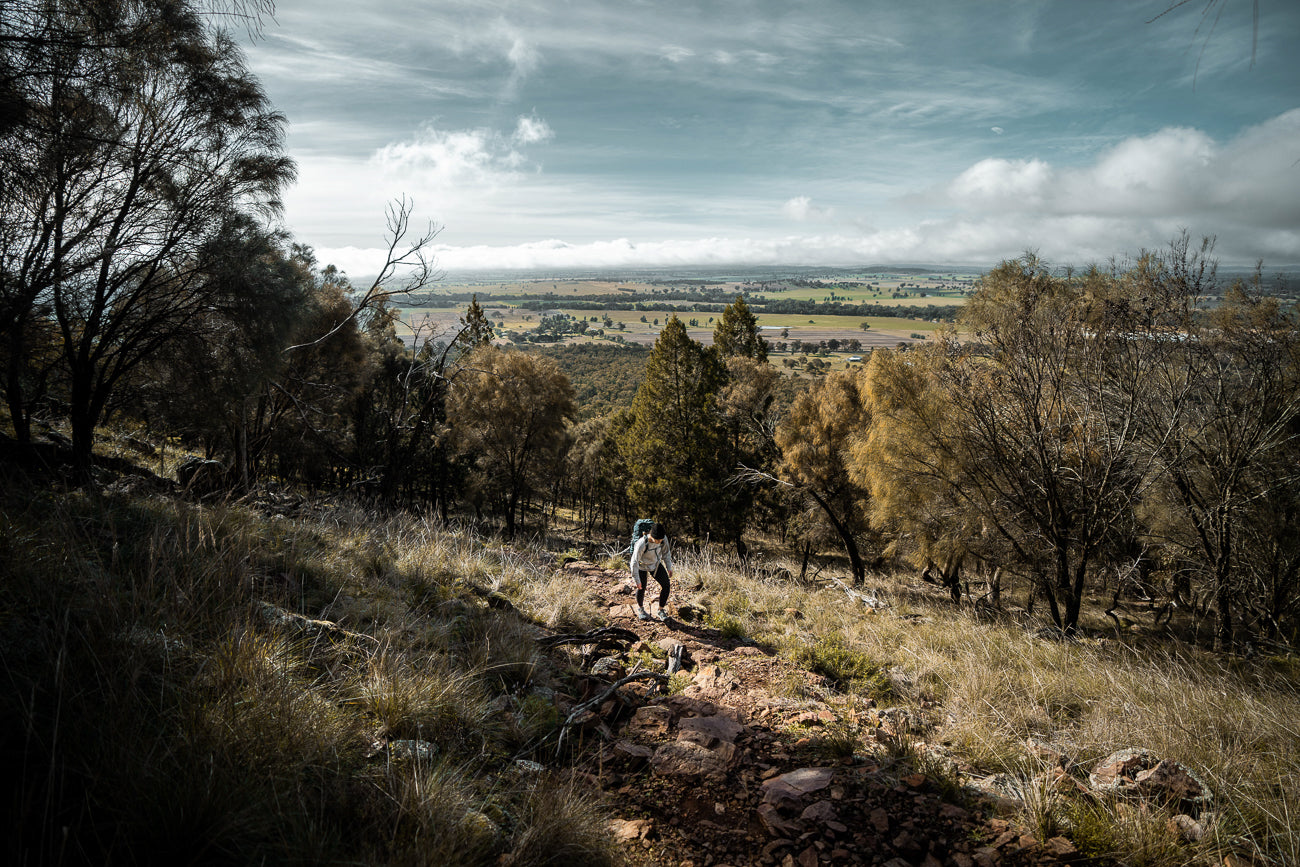
Yerong Nature Trail
The Yerong Nature Trail gradually winds around the base and up to the peak of The Rock. A moderately challenging hike that gets harder as it gets steeper as you get closer and closer to the top. The Yerong Nature Trail is a 6km return hike, which should take anywhere from 2 to 4 hours, depending on your fitness level and how long you spend admiring the surrounding flora and fauna. As you near the top, look out for the woolly ragwort plants amongst the recessed cliffs. These yellow flowering bushes are a threatened species, and The Rock is home to one of the largest populations.
Yugay Track
The Yugay track starts its climb almost immediately after leaving the car park. This is the harder of the two options, but slightly shorter at 5km return, and also takes you past The Towers, where the Peregrine Falcons nest. The Yugay track keeps you on your toes with a few sections of rock scrambling and rock hopping. This track does link up with the Yerong Nature Trail near the top, so both trails can be walked together as a loop.
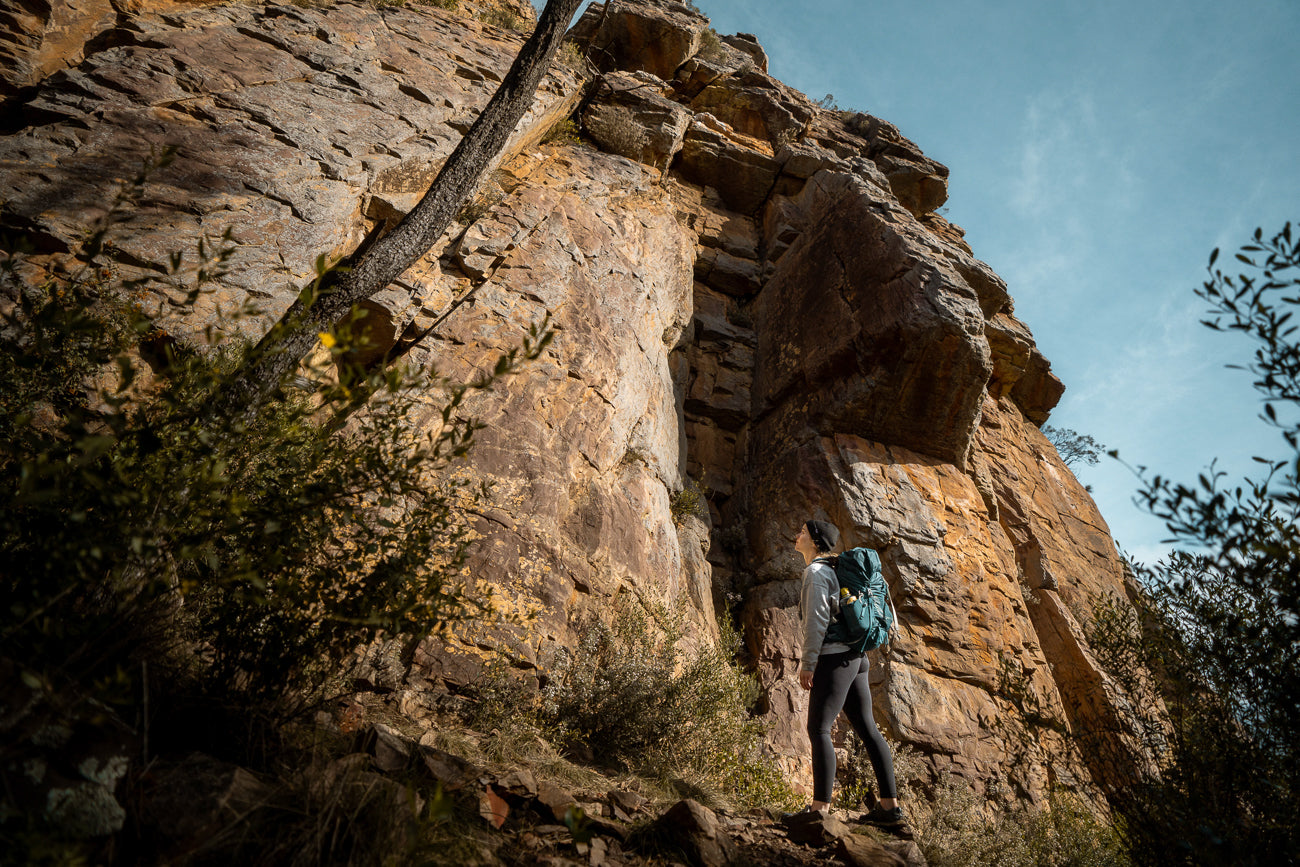
If you interested in visiting The Rock yourself, make sure to check NSW National Parks & Wildlife Website for track updates and closures. And as always, treat the area with respect and leave only footprints.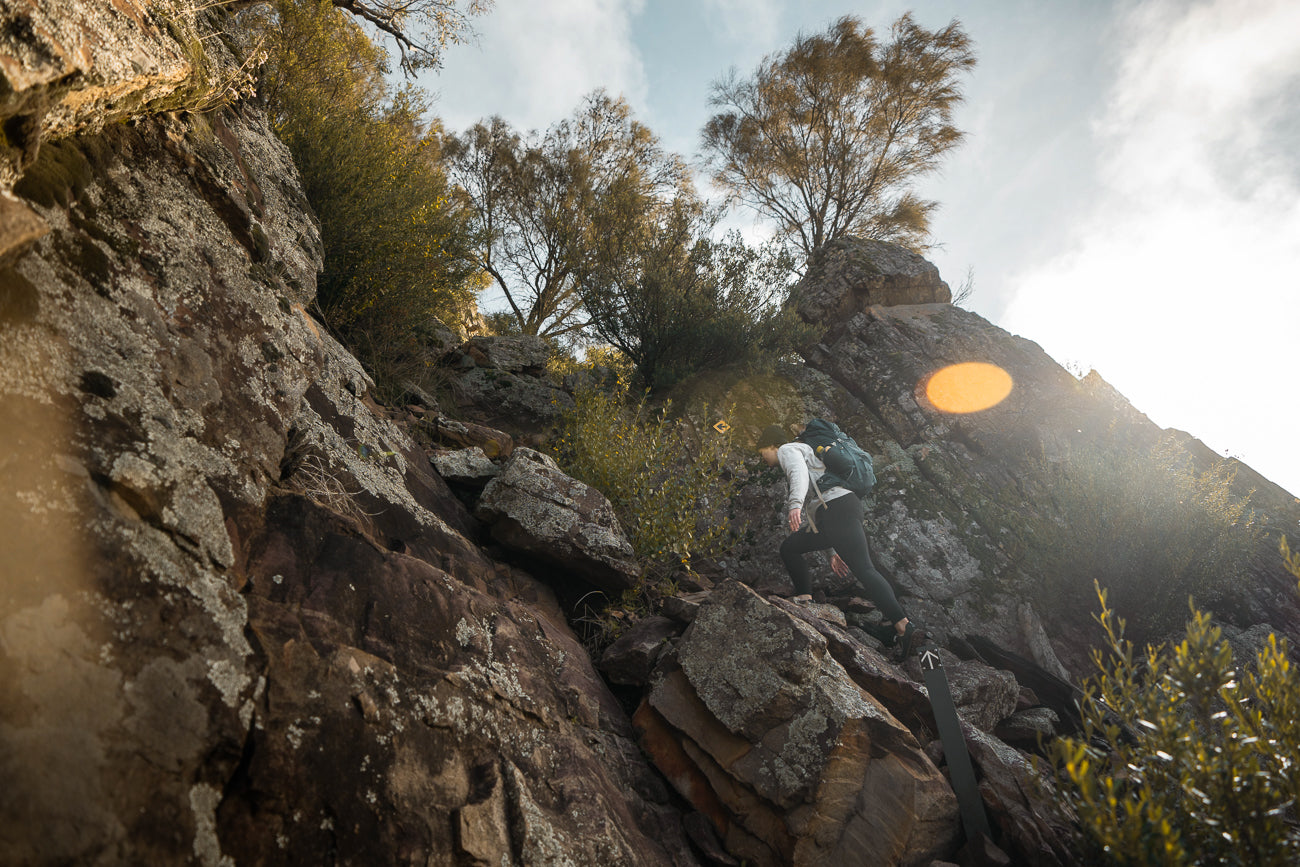
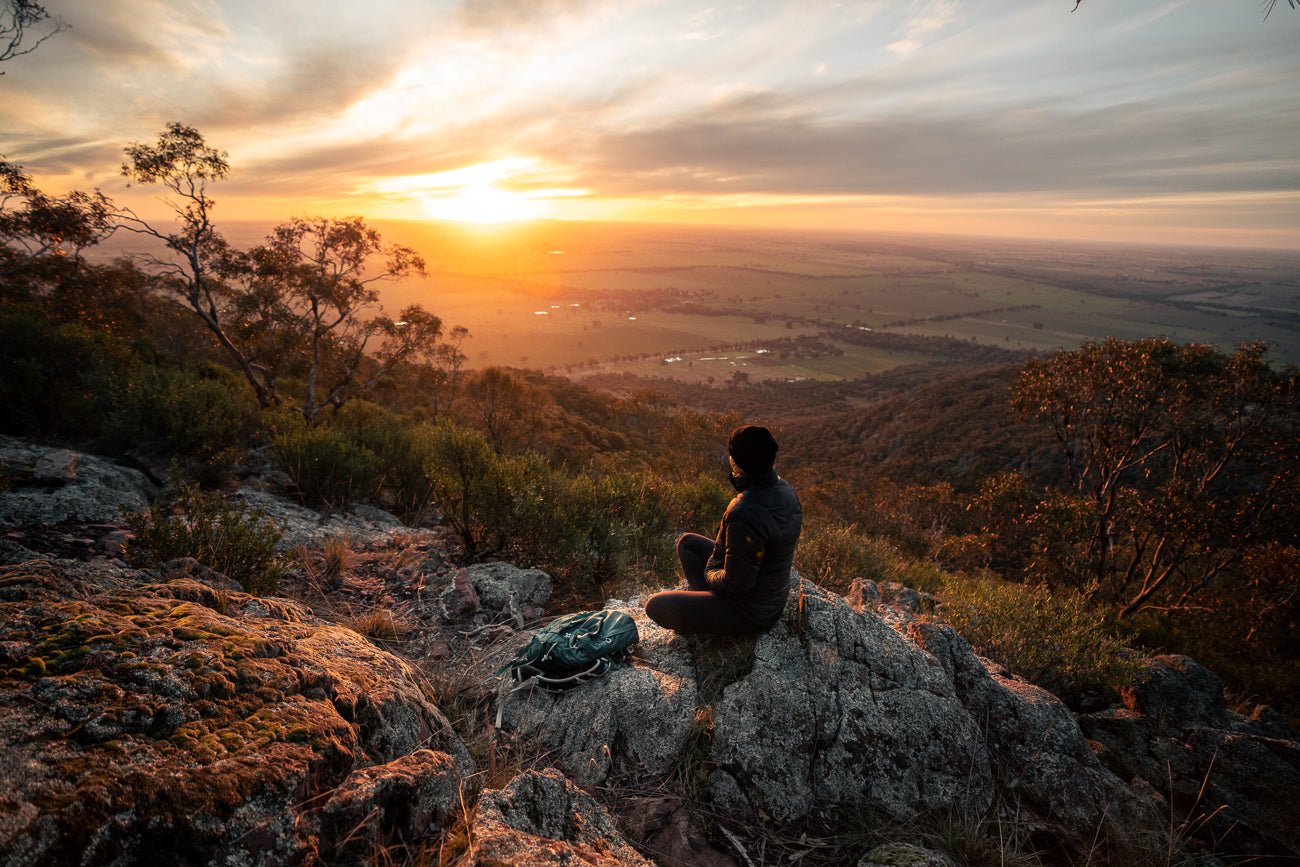
Written by Chloe Symons

